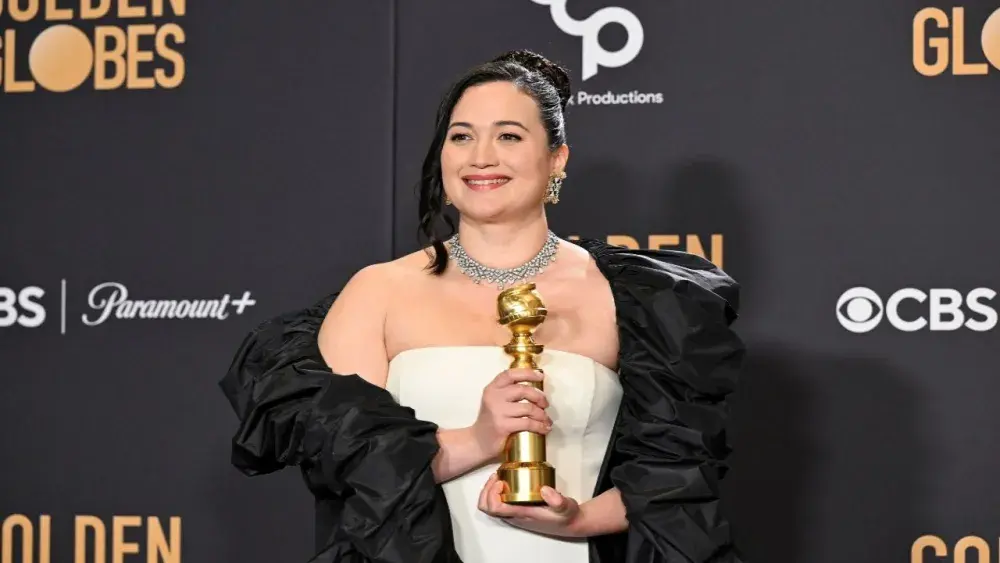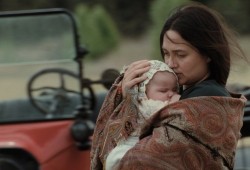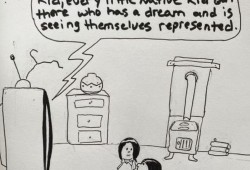The new year started off making a mark in history when Lily Gladstone, who grew up on the Blackfeet reservation, became the first Indigenous woman to win a Golden Globe as Best Female Actor in a Drama for her performance in Killers of the Flower Moon.
“We all cried,” recalled Chad Charlie, an Ahousaht writer and producer, who was watching the Golden Globes with his fiancée and daughter. “We all cried because it's a historic moment.”
“This is something that… opens up a lot of doors, not only for Lily, but everything that she touches,” said Charlie. “I know that Lily has a lot of things that she wants to do, and I know that the moment she gets an opportunity, she's going to be bringing other people with her.”
With a budget of $200 million, the three-and-a half-hour Killers of the Flower Moon was directed and produced by Martin Scorsese. It tells the story of the Osage Nation after the First World War, who had become wealthy from the discovery of oil within their land in Oklahoma. Gladstone plays Mollie Kyle, an Osage whose family owns vast oil headrights. Kyle marries war veteran Ernest Burkhart, played by Leonardo DiCaprio, and a series of murders occur on Osage land as a result of the oil rights.
Gladstone is also known for her role on the Reservation Dogs TV series as Hokti Sampson. She’s in season two and three, the same two seasons Charlie worked on as a writer and actor.
“Everybody's extremely excited for her,” said Charlie, recalling the reaction of the Reservation Dogs cast and crew in their group chat.
“I think everybody just knows that a win for her is a win for all of us,” added Charlie. “When it comes to other natives in film and projects, we hope to see ourselves, and when she won, she won for all of us… she represents a lot.”
Whoopi Goldberg was the first woman of color to win a Golden Globe in the same category for her performance in The Color Purple in 1986. Thirty-five years later, Andra Day won in the category for her role in The United States vs. Billie Holiday in 2021.
“I don't know the exact number but a large percentage of it is white women within that specific category,” said Charlie.
In Gladstone's acceptance speech she spoke in her Blackfeet language. Gladstone shared that in the past movies have depicted Indigenous languages by playing a recording of English lines in reverse, dubbed over an Aboriginal actor speaking on screen.
“I’m so grateful that I can speak even a little bit of my language, which I’m not fluent in, up here,” said Gladstone.
“When it comes to Lily winning, that’s a breakthrough the glass ceilings that we’ve been trying to get through,” said Charlie.
Within storytelling in the industry, executives push for a “proven formula” which limits the creative abilities of Indigenous writers and producers in telling meaningful stories, added Charlie.
“A lot of the difficulties in Hollywood is moving past the idea of what the world thinks native people live like,” said Charlie. “We can be badass, we can be superheroes, we can be just little kids trying to get by on the rez, we [can] be anybody that we choose to be.”
Aboriginal writers and producers are constantly being rejected by executives who claim they “can’t have multiple native” TV shows or movies on streaming sites, shared Charlie.
“Theres multiple producers out there that are constantly getting shut down because executives are telling them ‘No, we already have a native project’,” he said, adding that authentic Indigenous storytelling that allows Aboriginal artists to control parts of their stories is popular now. “I think we're just at a time where we're tired of the way that we've been treated in Hollywood.”
“I think that in order for us to continue to be storytellers, the way that we've been doing it for centuries and millennia, we just [have to] keep on doing it the way that we need to [and] the way that we want to,” continued Charlie.
Gladstone dedicated her award to “every little rez kid, every little urban kid, and every little native kid out there who has a dream, who is seeing themselves represented and our stories told by ourselves, in our own words.”
“I don't think the film industry has always been a friendly place for Indigenous folks so I think to see someone like Lily Gladstone be recognized for her professional contributions to the industry is likely to be very inspiring for youth,” said Kirsten Vesterback, a photography, digital technology, and drama teacher at Alberni District Secondary School (ADSS).
Vesterback shared that she’s unsure how closely the youth follow award shows and she believes that the continued lack of representation of those winning may be a contribution.
“Sometimes kids may struggle to be inspired if they don’t see people that share their experiences reflected in those award shows,” she said.
“I think more so here, at least at the high school level, kids join drama and want to be involved in… our yearly productions that we put on because it's a bonding experience,” added Vesterback. “It really brings people together. They end [as] a tight group and it's always a very diverse group.”
This year ADSS is putting on a production called: She Kills Monsters.
For Charlie, he dreams to one day accept an award for his work as a writer or director.
“The fact that I'm able to see her do that, and Indian country is able to see her do that, this gives us hope to keep on going,” said Charlie. “When it comes to Nuu-chah-nulth kids, I would constantly remind them to just keep on going, put yourself out there; act, direct, write your stories, try and find ways to do it.”
Charlie shared that there will be opportunities in the industry, “as long as we continue to push our people and inspire our people to keep on moving forward.”
Among opportunities, Charlie is currently developing an Ahousaht story that will be filmed on Vancouver Island.
At the Golden Globes, Gladstone wore a Valentino dress, alongside earrings by a Cree and Blackfeet designer, Lenise Omeasoo.
“I think that if Lily's able to go in front of these cameras, and as a successful actress, wearing native-designed beadwork… it sparks an idea that we are able to succeed and create something so beautiful in a world that makes it hard to believe that it's possible,” said Charlie.



